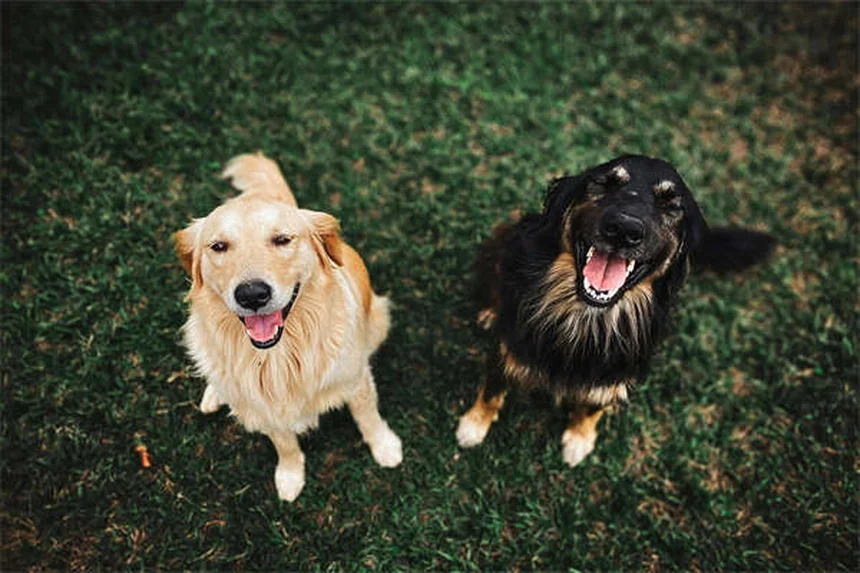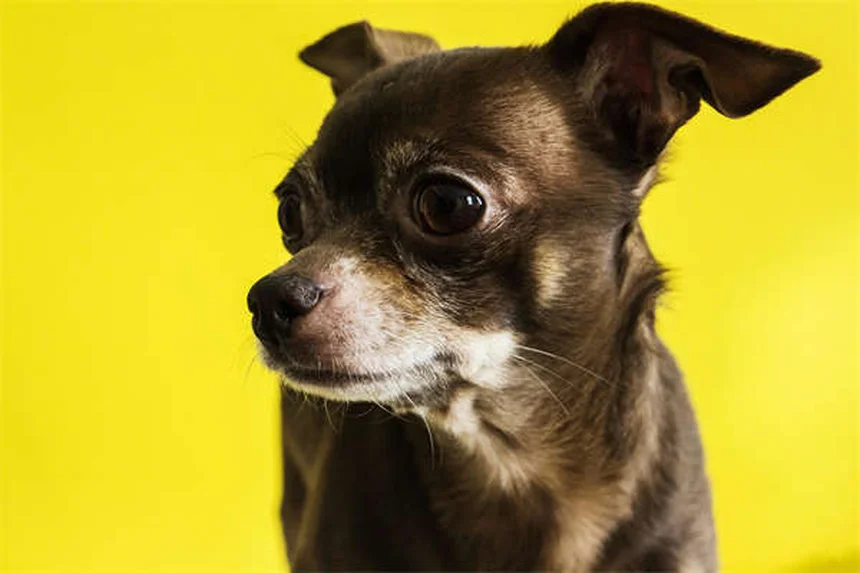Advertisement
Can dogs eat honey? The answer is yes - in moderation! Honey can be a sweet treat for your pup, packed with antioxidants and vitamins. But before you start sharing your honey jar, there are some important safety rules to know.I've been giving my dogs honey for years, and here's what I've learned: raw honey is dangerous for puppies, while pasteurized honey can actually boost your adult dog's health. The key is portion control - too much can lead to upset stomachs or weight gain.In this guide, we'll cover exactly how much honey is safe for your dog based on their size, the best ways to serve it, and when you should absolutely avoid it. Let's dive into the sticky sweet truth about dogs and honey!
E.g. :Ehrlichiosis in Dogs: 5 Must-Know Symptoms & Treatment Tips
- 1、The Sweet Truth About Dogs and Honey
- 2、The Good, The Bad, and The Sticky
- 3、Portion Control is Key
- 4、Honey Myths Busted
- 5、Honey Do's and Don'ts
- 6、Beyond the Honey Jar: Exploring Natural Sweeteners for Dogs
- 7、The Science Behind Dogs and Sweetness
- 8、Honey in Dog Training: Yay or Nay?
- 9、The Future of Honey in Canine Nutrition
- 10、FAQs
The Sweet Truth About Dogs and Honey
Can Fido Enjoy This Golden Treat?
You're stirring honey into your tea when those puppy eyes lock onto the jar. "Can my dog have some too?" you wonder. The answer? Yes, but with some important caveats!
Honey isn't just safe for most dogs - it actually packs some surprising health benefits. But before you start drizzling it on everything, let's talk about the right way to share this sweet treat with your four-legged friend.
When Honey Becomes a No-Go Zone
Now here's something you might not know: raw honey can be dangerous for puppies and immunocompromised dogs. Why? Because it might contain botulism spores that their developing or weakened immune systems can't handle.
I learned this the hard way when my neighbor's 8-month-old golden retriever got into some raw honey. The poor pup spent two days at the vet! That's why we always recommend:
- No honey for puppies under 1 year
- Pasteurized only for dogs with health issues
- Always check with your vet first
The Good, The Bad, and The Sticky
 Photos provided by pixabay
Photos provided by pixabay
Honey's Superpowers for Dogs
Did you know honey is like nature's medicine cabinet? Here's what makes it special:
Antioxidant powerhouse: These little warriors fight cell damage and keep your pup feeling youthful. My 10-year-old lab gets a teaspoon of manuka honey in his breakfast, and he still acts like a puppy!
The vitamin and mineral content is impressive too. Check out what's inside each golden drop:
| Vitamins | Minerals |
|---|---|
| Vitamin C | Calcium |
| B Vitamins | Iron |
| Niacin | Zinc |
The Not-So-Sweet Side
But here's the buzzkill - honey is basically liquid sugar. And just like with us humans, too much sugar spells trouble for dogs.
Ever seen a dog with a sugar crash? It's not pretty. They might experience:
- Upset stomach (the dreaded "honey squirts")
- Lethargy (more naps than usual)
- Long-term weight gain
Portion Control is Key
How Much is Too Much?
Here's a golden rule: treats should never exceed 10% of your dog's daily calories. For honey, that breaks down like this:
| Dog Size | Honey Serving |
|---|---|
| Teacup (2-10 lbs) | 1/8 teaspoon |
| Small (11-20 lbs) | 1/4 teaspoon |
| Medium (21-50 lbs) | 1/2-1 teaspoon |
Remember when I gave my beagle a tablespoon instead of a teaspoon? Let's just say we both regretted that decision the next day!
 Photos provided by pixabay
Photos provided by pixabay
Honey's Superpowers for Dogs
Now for the fun part - how to make honey exciting for your pup!
Frozen Kong Surprise: Mix a dab of honey with peanut butter (xylitol-free!), stuff it in a Kong, and freeze. It's like a doggy popsicle that keeps them busy for hours!
Pup Smoothies: Blend honey with dog-safe fruits and yogurt. My dogs go crazy for the "banana-honey delight" I make on hot summer days.
Honey Myths Busted
Does Honey Cure Dog Coughs?
You might be wondering: "If honey helps my sore throat, will it help my dog's cough?" The truth is, we don't have solid proof it works the same way for dogs.
While honey can soothe throats, that cough could signal anything from kennel cough to heart disease. Always see your vet before playing Dr. Dolittle with home remedies.
Is Honey a Natural Antibiotic?
Here's where it gets interesting. Certain honeys (especially manuka) do have antibacterial properties. But - and this is a big but - they're no substitute for vet-prescribed antibiotics when your pup has a serious infection.
Think of honey as the backup singer, not the lead vocalist in your dog's healthcare band.
Honey Do's and Don'ts
 Photos provided by pixabay
Photos provided by pixabay
Honey's Superpowers for Dogs
Let's wrap this up with some quick tips to keep your pup safe and happy:
- DO choose pasteurized honey for safety
- DON'T give honey to puppies under 1 year
- DO start with tiny amounts to test tolerance
- DON'T use honey as medicine without vet approval
Remember, every dog is different. What works for my three honey-loving hounds might not be right for your pup. When in doubt, call your vet - they'll give you the sweetest advice of all!
Beyond the Honey Jar: Exploring Natural Sweeteners for Dogs
What Other Natural Sweeteners Are Safe?
Honey isn't the only sweet treat you can share with your pup! Let's explore some alternatives that might surprise you. Pure maple syrup in tiny amounts can be a nice change of pace - just make sure it's the real deal, not the pancake syrup loaded with artificial ingredients.
Ever considered coconut nectar? This low-glycemic sweetener comes from coconut blossoms and contains amino acids that support your dog's health. I started adding a few drops to my senior dog's food when she became picky about eating, and it worked like magic!
The Sweetener Showdown
Not all sweeteners are created equal when it comes to canine health. Here's a quick comparison to help you make informed choices:
| Sweetener | Safety for Dogs | Glycemic Index |
|---|---|---|
| Raw Honey | Safe (over 1 year) | 58 |
| Maple Syrup | Safe in moderation | 54 |
| Coconut Nectar | Very safe | 35 |
| Agave | Not recommended | 15-30 |
See how coconut nectar comes out on top? That's why I keep a small bottle in my pantry just for my furry friends. But remember - even the safest sweeteners should only be occasional treats!
The Science Behind Dogs and Sweetness
Do Dogs Actually Taste Sweet?
Here's something fascinating - dogs have far fewer taste buds for sweetness than humans do! While we have about 9,000 taste buds, our canine companions only have around 1,700. So when you're sharing that honey treat, your pup isn't experiencing the same intense sweetness you are.
But wait - if dogs don't taste sweetness as strongly, why do they go crazy for honey? The answer lies in their incredible sense of smell. That rich, floral aroma of honey is what really gets their tails wagging. My beagle can smell an open honey jar from three rooms away!
The Evolutionary Sweet Tooth
Ever wonder why dogs seem drawn to sweet things despite their limited ability to taste them? It's all about survival instincts. In the wild, sweet-tasting foods often meant quick energy and valuable nutrients.
Modern dogs have inherited this preference from their ancestors. That's why your Lab might go bonkers for honey - their DNA is telling them it's a valuable resource, even if their taste buds aren't getting the full experience!
Honey in Dog Training: Yay or Nay?
The High-Value Treat Debate
Should you use honey as a training reward? I've seen both sides of this argument. Some trainers swear by tiny dabs of honey on a spoon for recall training, while others warn it creates expectation for super-high-value treats.
In my experience, honey works best for:
- Emergency recall situations
- Introducing scary objects (like nail clippers)
- Building confidence in shy dogs
But for everyday obedience? Stick to healthier options like small pieces of chicken or training treats. You don't want your pup expecting liquid gold for every "sit" command!
Creative Training Applications
Here's a trick I learned from a service dog trainer: use honey to teach gentle mouth behaviors. Dab a tiny amount on a spoon and reward your dog for taking it carefully. This helps prevent those enthusiastic "snatch-and-grab" moments that can lead to accidental nips.
Another cool use? Honey can help with scent training. Its strong, distinctive smell makes it perfect for teaching nose work basics. Just smear a tiny bit on a cotton ball and hide it - instant fun game that exercises your dog's brain!
The Future of Honey in Canine Nutrition
Emerging Research on Bee Products
Scientists are just beginning to explore how other bee products might benefit dogs. Propolis, that sticky stuff bees use to build their hives, shows promise as a natural immune booster. And royal jelly? Some holistic verns are experimenting with it for senior dog cognitive support.
But here's the million-dollar question: "Should we be giving our dogs these products regularly?" The honest answer is we don't have enough long-term studies yet. While early results look promising, it's best to approach these trends with cautious optimism and always consult your vet.
Responsible Sourcing Matters
If you're going to share honey with your pup, quality matters more than you might think. Commercial honey operations sometimes feed bees sugar water or use pesticides that can end up in the final product.
That's why I always recommend:
- Local raw honey (for adult dogs)
- Organic whenever possible
- Small-batch producers who care about bee health
Remember, happy bees make better honey - and that's good news for both you and your four-legged honey enthusiast!
E.g. :Can Dogs Eat Honey? | PetMD
FAQs
Q: Can puppies under 1 year eat honey?
A: No, puppies should never have honey - especially raw honey. Here's why: their immune systems aren't fully developed yet, and honey can contain botulism spores that might make them seriously ill. I learned this lesson the hard way when a friend's 6-month-old golden retriever got into some raw honey and needed emergency vet care. Wait until your pup is at least 12 months old, and even then, start with just a tiny dab of pasteurized honey to test their tolerance.
Q: What type of honey is safest for dogs?
A: Pasteurized honey is the safest choice for most dogs. While raw honey has more nutrients, the pasteurization process kills potential bacteria that could harm your pup. My vet recommends sticking with regular store-bought honey rather than specialty raw varieties. If you really want to give your dog premium honey, manuka honey has great antibacterial properties - but it's expensive and you should still choose pasteurized versions.
Q: How often can I give my dog honey?
A: Honey should be an occasional treat, not a daily supplement. For my 35-pound beagle, I limit honey to once or twice a week maximum. Remember, treats (including honey) should make up less than 10% of your dog's daily calories. More than that can lead to weight gain and other health issues. I keep a special "honey spoon" in my kitchen that holds exactly the right portion for my dog's size.
Q: Can honey help my dog's allergies?
A: There's some debate about this! Some people believe local honey can help with seasonal allergies by exposing dogs to small amounts of local pollen. However, vets caution that there's no scientific proof this works for dogs like it might for humans. What's more concerning is that some dogs might actually be allergic to honey itself. Always start with a tiny amount and watch for itching, swelling, or digestive issues.
Q: What are signs my dog ate too much honey?
A: Watch for these warning signs: diarrhea, vomiting, loss of appetite, or unusual lethargy. When my neighbor's lab got into a whole jar of honey, he had what we jokingly called "the honey squirts" for two days! More serious cases might show trembling or difficulty walking from a sugar crash. If you see these symptoms, skip the next few honey treats and consider calling your vet, especially for small dogs who can't handle much sugar.

